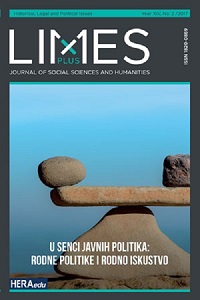Populaciona politika z ugla žena – analiza skustava i političkih opredeljenja
Population Politics from Women’s Perspective – Analysis of the Experiences and Political Attitudes
Author(s): Nada SekulićSubject(s): Gender Studies, Demography and human biology, Nationalism Studies
Published by: HESPERIAedu
Keywords: population politics; feminism; nationalism; patriarchy; political culture of women in Serbia
Summary/Abstract: Research on the political attitudes and political culture of women in relation to their preferences concerning the population policies are rare and in domestic literature they are often instrumentalized with the purpose to serve the promotion of nationalist politics. The female “political angle” is poorly visible and is reduced to the pro and contra arguments based on preferences of regarding the number of children they want or can have. It is ignored that there is a wider political context and a political culture in which the choices are made. National (state) programs assess the fertility of women as desirable or undesirable based on class, race, caste, ethnicity, religious affiliation, disability, sexual orientation, marriage, domicile or immigrant status, projecting through this not only the scope of biological reproduction of the population, but inevitably the profile and standards of the political organization of the state and the acceptable or desirable profile of the citizen. The aim of this part of the research was to highlight the wider political and value framework in which women / mothers in Serbia and in northern Kosovo make their attitudes towards population policy. The analysis shows that about a third of respondents support conservative population policy measures, and that Populationist Conservatism (IPK) is a consistent political commitment related to patriarchy, nationalism, and also depends on the basic political choices of respondents (toward civic/ democratic, national or -egalitarian political systems). The outcomes of the research also show that a positive attitude towards feminism is closely related to supporting democratic measures of population policy.
Journal: LIMESplus
- Issue Year: 2017
- Issue No: 2
- Page Range: 15-48
- Page Count: 34
- Language: Serbian

